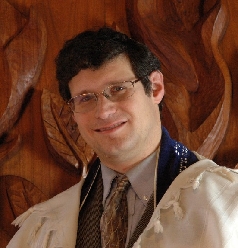Commentary on Parshat Vayechi (Genesis 47:28 – 50:26)
This past summer, five participants in a Birthright Israel trip (free 10-day Israel tours offered to young adults) left the tour to visit with Palestinians on the West Bank. Their decision to do so came after receiving a map that made no effort to demarcate the Palestinian territories from Israel proper. This, after several not-so-subtle messages that difficult questions about the occupation would not be taken seriously. On a later trip, eight more young people made a similar decision.
Birthright’s response was to restate its policy that those who divert from the tour without authorization forfeit their deposit and must pay for their own flight home. It insisted that it runs a positive program that does not take political stands.
This is part of a well-known broader problem. The American Jewish establishment has not been kind to those who espouse a Zionism that opposes settlements in the occupied territories.
Sign up to receive Torah from T’ruah in your inbox each week.
This week’s Torah portion has something to say about including dissonant voices. In the Book of Genesis, anti-establishment forces are personified in younger sons. In his early years, Jacob, with his mother’s help, resorts to blackmail and deceit to wrest the blessing from his brother Esau. A lifetime later, in Parshat Vayechi, an elderly, nearly blind Jacob calls his grandsons Ephraim and Manasseh to him in order to bless them. The Torah says:
Israel stretched out his right hand and laid it on Ephraim’s head, though he was the younger, and his left hand on Manasseh’s head — sikel et yadav, although Manasseh was the first born. (Genesis 48:14)
It is not immediately clear what this Hebrew phrase, sikel et yadav, means. Rashi connects it with the word sekhel, intellect or intelligence, and explains it in the following way:
שכל את ידיו PLACING HIS HANDS DESIGNEDLY — Understand this as …meaning designedly and wisely he moved his hands for this purpose, intelligently and with full knowledge, for he knew that Manasseh was the first-born and yet he did not place his right hand upon him.
According to Rashi, the text emphasizes Jacob’s deliberateness and presence of mind when he decides to which grandson to give precedence. In fact, when Joseph, the lads’ father, objects, the Torah tells us:
“Not so, Father,” Joseph said to his father, “for the other is the first-born; place your right hand on his head.” But his father objected, saying, “I know, my son, I know. He too shall become a people, and he too shall be great. Yet his younger brother shall be greater than he…. (Genesis 48:18-19)
When Jacob says, “I know,” there can be no doubt but that he does. For in his mind’s eye he sees himself as a young man tricking his own nearly blind father Isaac into granting him firstborn status. Here Jacob confirms that the accepted law of primogeniture does not always work. Sometimes the younger child will in fact be greater. But unlike his own youth, here he does this with full transparency. There can be no doubt that he is giving this blessing the way he is on purpose and with careful deliberation.
Find more commentaries on Parshat Vayechi.
Perhaps Jacob is saying that the dissonant voices of “younger children” are essential, and the system must find a way to include their perspective rather than force them to resort to rule-breaking.
 Those in the Israeli government and Jewish establishment who claim to be apolitical while clearly shutting down the voices of those who love Israel but whose politics are not right-of-center do a grave disservice to both Israel and Jewish youth. Because of this message, many younger Jews may feel they have no recourse but to reject Israel entirely.
Those in the Israeli government and Jewish establishment who claim to be apolitical while clearly shutting down the voices of those who love Israel but whose politics are not right-of-center do a grave disservice to both Israel and Jewish youth. Because of this message, many younger Jews may feel they have no recourse but to reject Israel entirely.
A healthy community incorporates its “younger children,” its revolutionaries, in order to constantly renew itself. It forces these voices into the shadows at its peril.
Perhaps this vision is why to this day Jews bless our sons with the blessing quoted in our Torah portion: “May God make you like Ephraim and Manasseh.” It is a vision of holding true to our ideals while listening to the voices of the young that, in the end, will reap untold benefit for Am Yisrael.
Rabbi Theodore M. Lichtenfeld has been the rabbi of Congregation Agudat Achim in Niskayuna, NY since 2008. He was ordained by the Jewish Theological Seminary in 2001. He is married to Rabbi Miriam Midlarsky Lichtenfeld and has three children.

